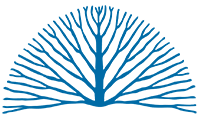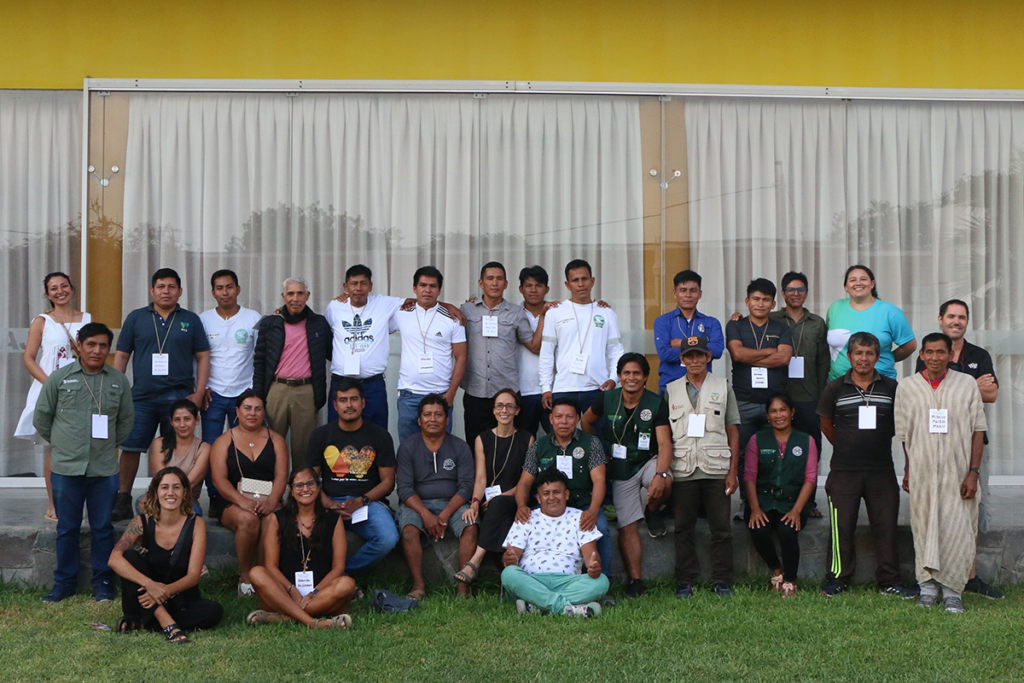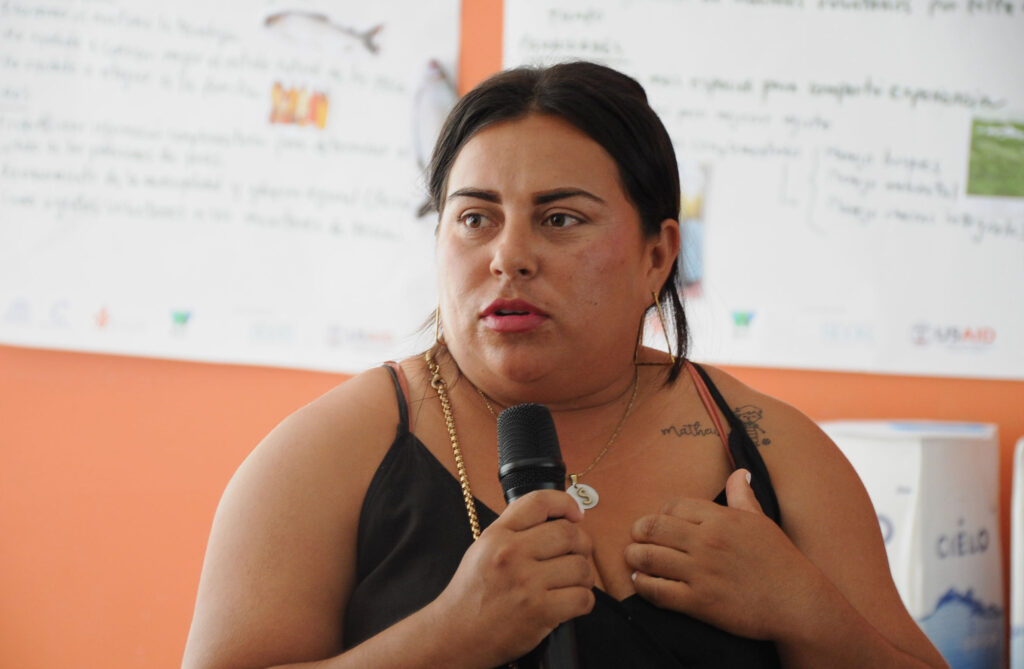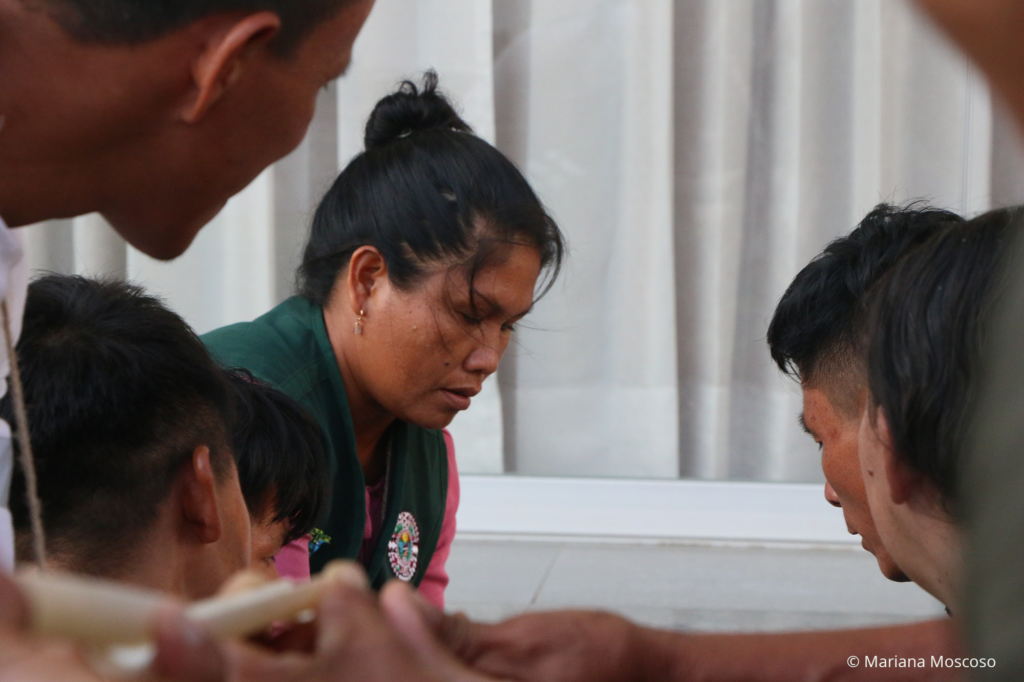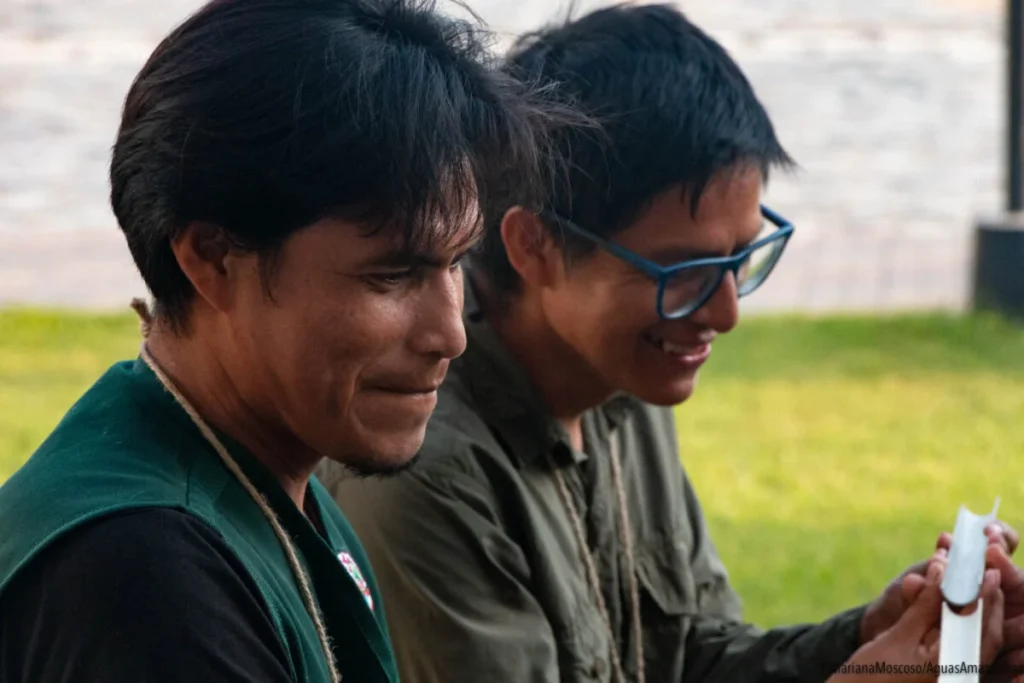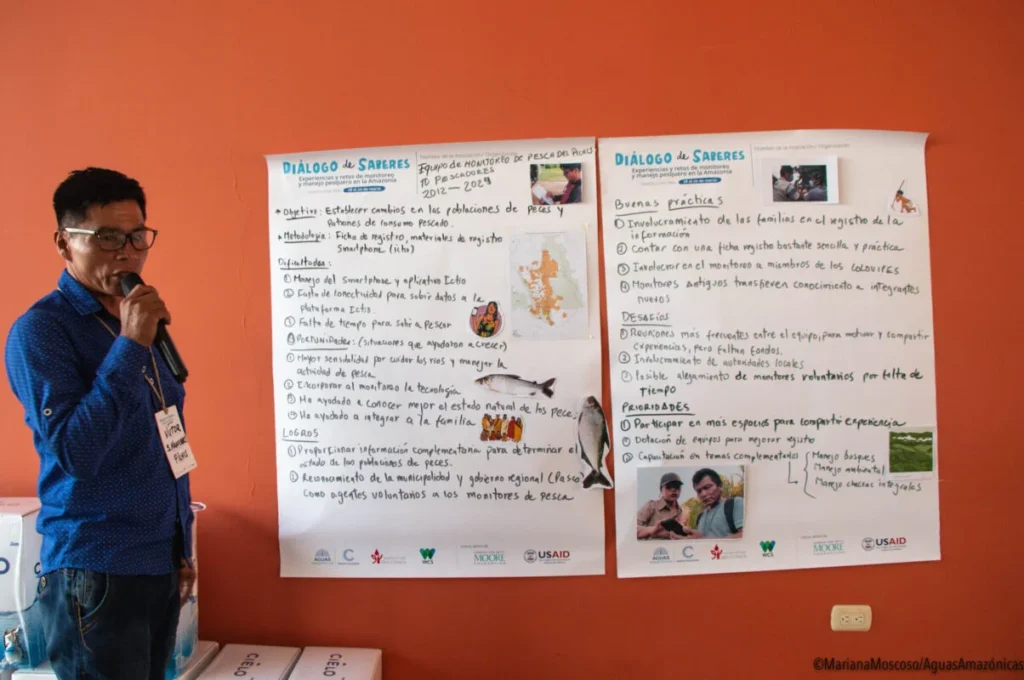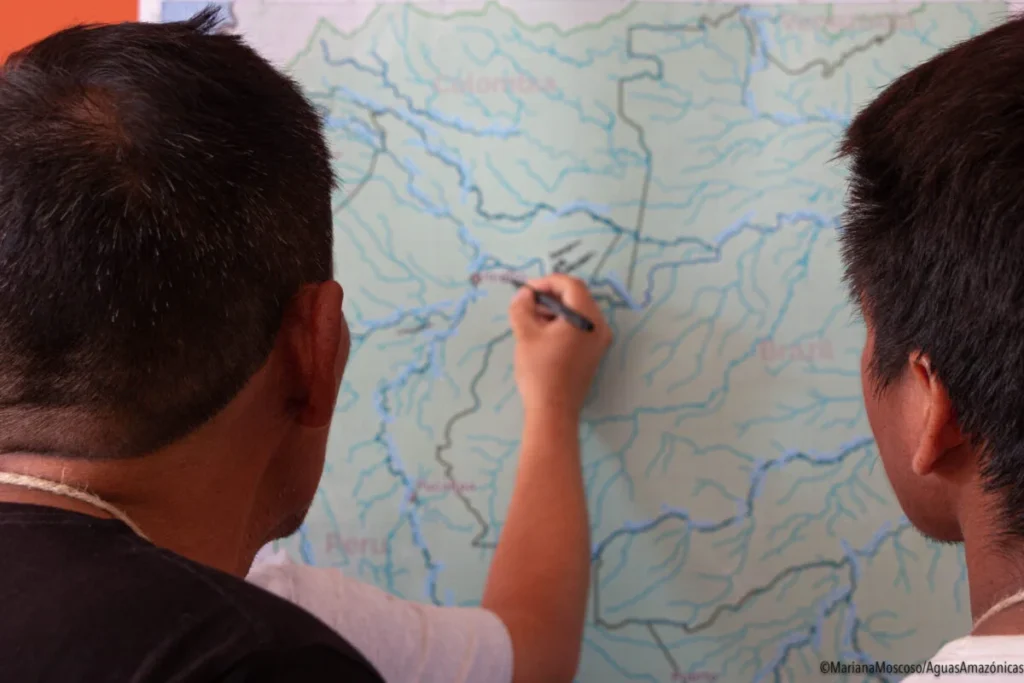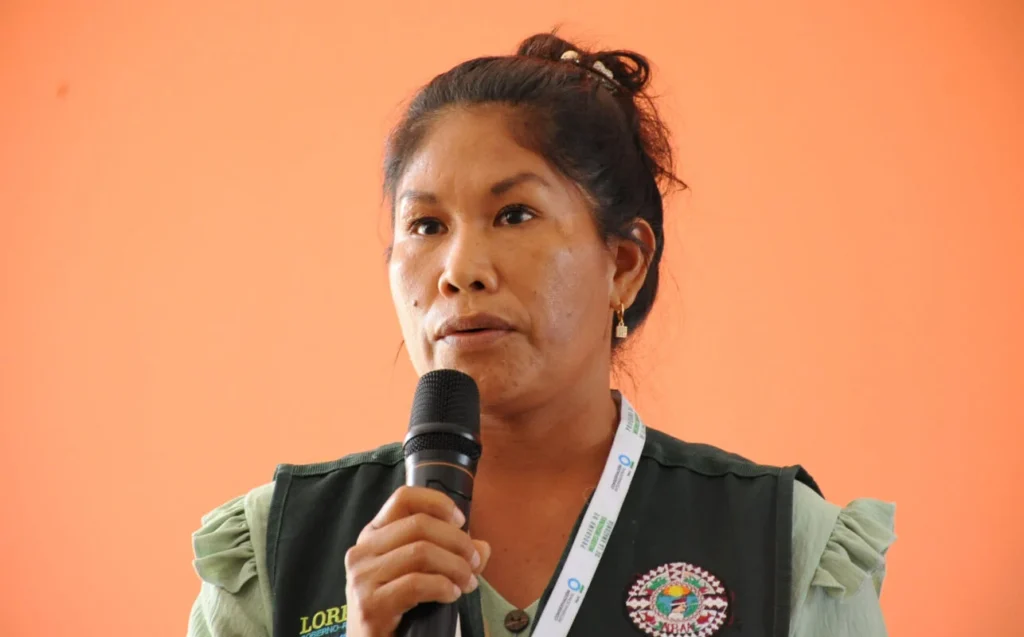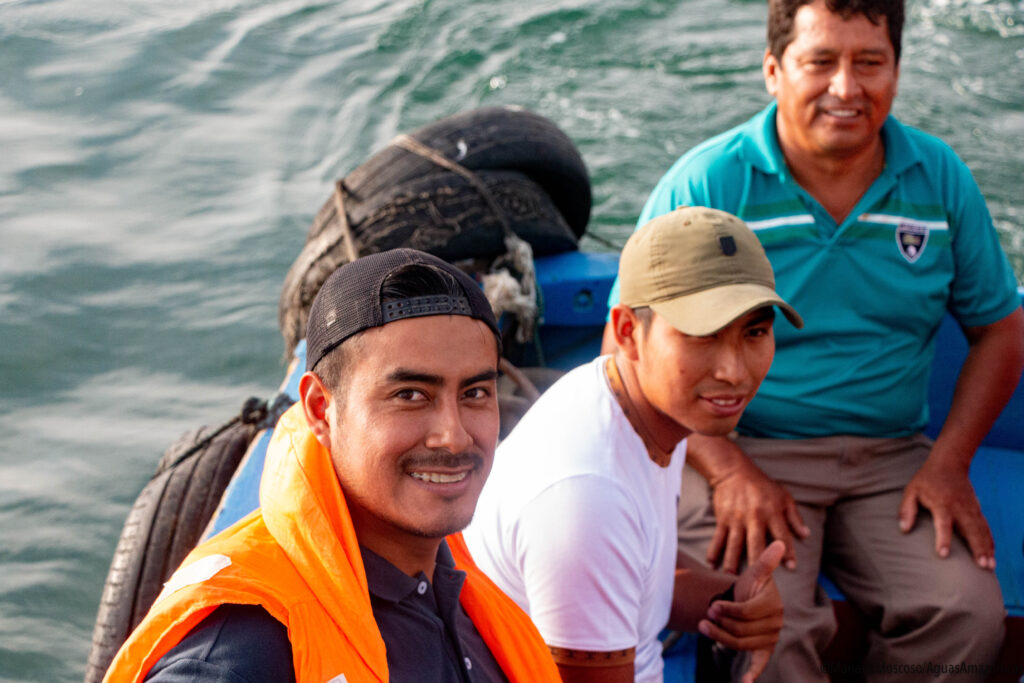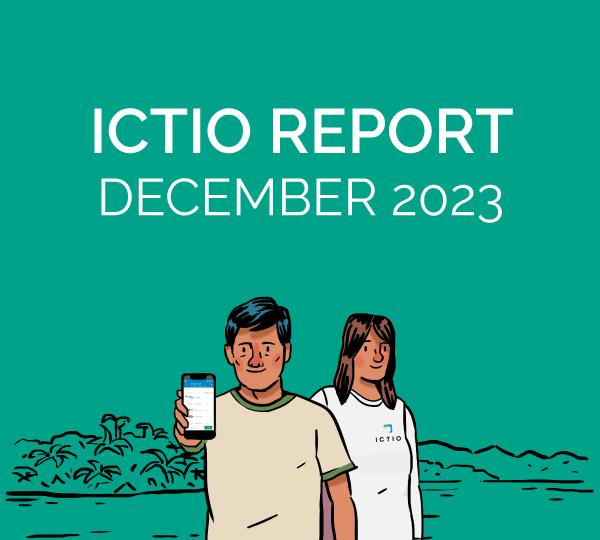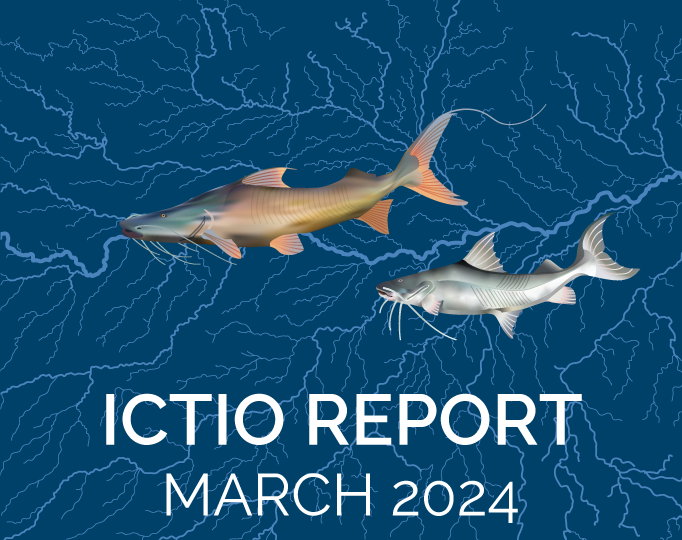The Second Knowledge Dialogue, convened by the Amazon Waters Alliance in Lima, Peru, became a vital space to exchange experiences and knowledge on fisheries management in the Amazon. Leaders and representatives of different organizations joined efforts to face common challenges and move towards sustainable fisheries in the region.
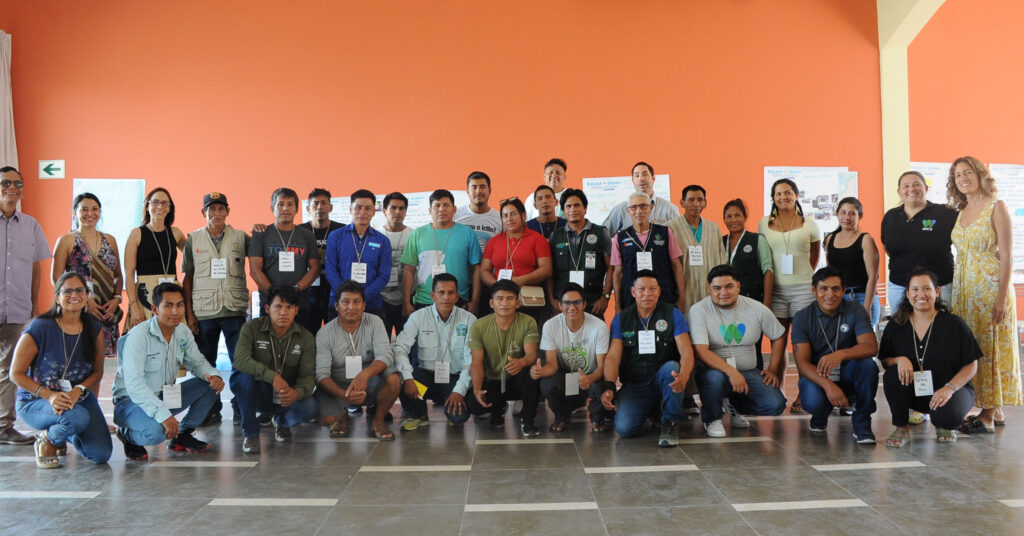
Participants of the Second Knowledge Dialogue. Photography: WCS
Under the leadership of the Instituto del Bien Común, the Amazon Waters Alliance organized the Second Knowledge Dialogue in Huacho, Lima, Peru, from March 18 to 20. Its main objective was to share knowledge, experiences and lessons learned related to fisheries management in the Amazon Basin.
Over three days, the 32 participants discussed common challenges in fisheries management, including monitoring, fishing activities, marketing, public policies, and the inclusion of gender and youth in fisheries.
Representatives of organizations from Ecuador, Bolivia and Peru a letter of commitment to jointly address the challenges in fisheries management in the Amazon.
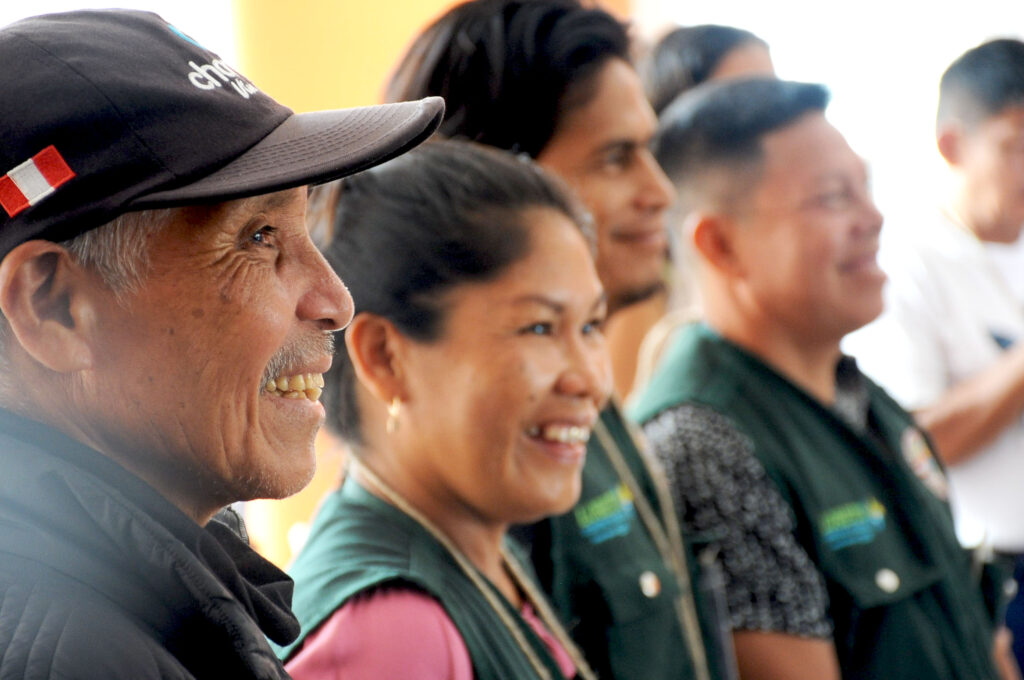
Photo: Sofía Lazarte / WCS
The letter recognizes that it is essential to incorporate the participation of fishermen and fisherwomen in decision-making on Amazonian fisheries. It proposes to create an Alliance of Amazonian Fishermen, and Fisherwomen to coordinate actions and promote policies with authorities. As a first joint action, they proposed the organization of a day to clean up rivers, forests and communities. Read the full letter here (in Spanish).
In total, 13 experiences were presented: COLOVIPAS from the Ampiyacu River, APPA El Manatí de Apayacu from the Apayacu River, Shawi Santa Elena Native Community from the Cahuapanas River, APPA Puma Garza from the Tahuayo River, Fisheries Monitoring Team from the Pichis River, Community Environmental Monitoring Program from the Puinahua River and PMAC Bajo Urubamba, Tsirerishi Matinguenga Native Community from the Upper Manu Madre de Dios River, Banchero Rossi Fishermen’s Association from Puerto Maldonado, Chororo Showu Indigenous Fishermen’s Association of the Mamoré River, El Sábalo Indigenous Fishermen’s Association from the Beni River, Cochabamba Fishermen’s Association from the Ichilo River, Artisanal Fishermen’s Association of the Napo River and the Kaputna Shuar Center from the Santiago River; along with technicians from partner institutions WCS, IBC, San Diego Zoo and CINCIA.
One of the participants, Saira Bucheli, leader of the Association of Artisanal Fishermen from the Napo River, Ecuador, said: “I liked it because we exchanged experiences and now I can take the ideas of my Peruvian and Bolivian brothers to my association, take them into account, and be able to implement them there. We can follow their examples, because they (the other countries) are more advanced in fisheries management”.
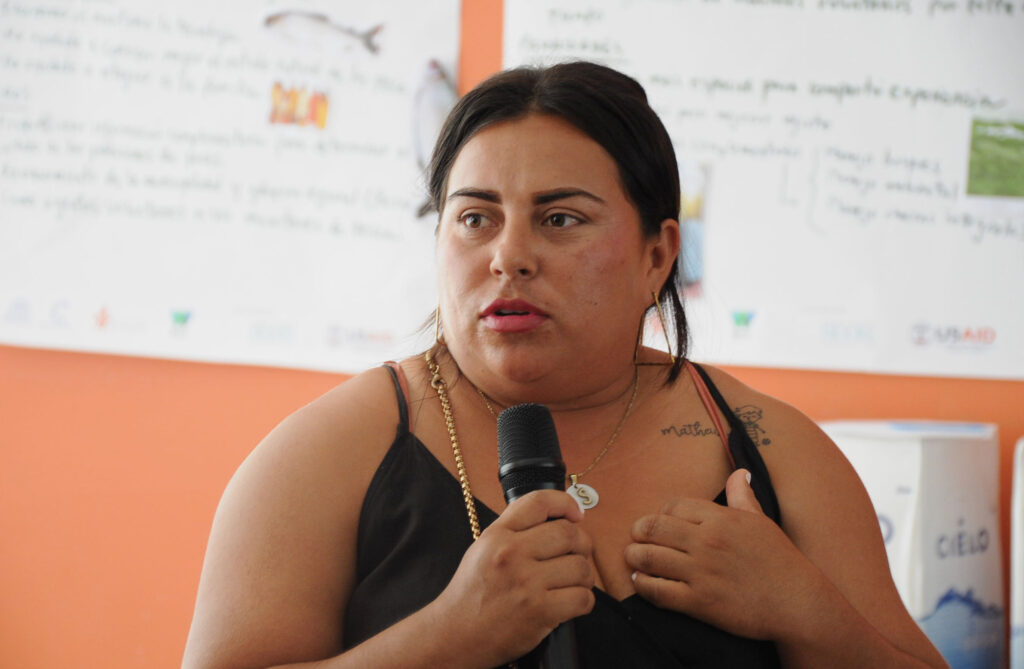
Saira Bucheli, president of the Association of Artisanal Fishermen from the Napo River. Photography: Sofía Lazarte / WCS
On the last day, the event was attended by representatives of USAID, PRODUCE, DIREPRO Ucayali, DIREPRO Loreto, the Museum of Natural History UNMSM and the National Fisheries Institute of Ecuador. These authorities shared their perspectives and committed to support solutions to common challenges in fisheries management.
This event was held with the support of the Fundación Moore and the United States Agency for International Development (USAID) ), under the Together for Conservation project, led by WCS.

